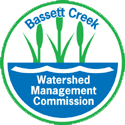News
Making space to confront systemic racism
Fri, Jun 12, 2020To our community,
On June 10th, more than 6,000 scientists participated in a one-day strike to acknowledge the ways that systemic racism and white supremacy have shaped the scientific community. Their statement read, in part: “We recognize that our academic institutions and research collaborations — despite big talk about diversity, equity and inclusion — have ultimately failed black people…. The enterprise of science has been — and remains — complicit in systemic racism, and it must strive harder to correct those injustices and amplify marginalized voices.”
Adopt a Storm Drain would like to recognize and lend our voice to this need to pause and acknowledge that all of the talk and gradualism in our various communities has led to little change. Environmental work is built on the idea that community, working together, shapes the world. In the words of Martin Luther King, “We are caught in an inescapable network of mutuality, tied in a single garment of destiny. Whatever affects one directly, affects all indirectly.” This means that “business as usual” cannot continue while black people are being murdered in the streets.
The Metro Watershed Partners, a coalition of organizations that supports Adopt a Storm Drain in the Twin Cities, met to begin the conversation of how we are going to make changes, as a group and in our respective institutions. We committed to work together to take stock of where we’ve been and to do things differently going forward. We acknowledged the lack of representation of people of color in our consortium and in the environmental movement in general. We decided to pause together to listen and to reflect on the ways that our present is shaped by 400 years of racism; and to recognize that how we respond to the events unfolding now will shape the next 400 years. It’s that important.
We don’t know what this next phase of our work will look like, only that stepping into the unknown is a vital part of creating room for something new to occur. It’s a crucial part of ending what Resmaa Menakem calls the “dirty pain” of “avoidance, blame and denial” in order to step into the “clean pain” of “confronting our longtime collective dissociation and silence.” We trust that grappling in this space of “clean pain” is the way forward. (See below for a lengthier quote from Menakem’s book.)
As we pause, we are here to support you and your work. We continue to be so grateful for this community and all that you are doing to build safer and more resilient neighborhoods. You fill us with hope.
We welcome your thoughts and suggestions on how we can do more to join the fight against racism in all of its forms.
Wishing you all peace.
Signed,
The steering committee of the Metro Watershed Partners
In his book, My Grandmothers Hands: Racialized Trauma and the Pathway to Mending our Hearts and Bodies, Resmaa Menakem writes:
Clean pain is pain that mends and can build your capacity for growth. It’s the pain you experience when you know, exactly, what you need to say or do; when you really, really don’t want to say or do it; and when you do it anyway. It’s also the pain you experience when you have no idea what to do; when you’re scared or worried about what might happen; and when you step forward into the unknown anyway, with honesty and vulnerability…
Accepting clean pain will allow white Americans to confront their longtime collective dissociation and silence. It will enable African Americans to confront their internalization of defectiveness and self-hate. And it will help public safety professionals in many localities to confront the recent metamorphosis of their role from serving the community to serving as soldiers and prison guards.
Dirty pain is the pain of avoidance, blame, and denial. When people respond from their most wounded parts, become cruel or violent, or physically or emotionally run away, they experience dirty pain. They also create more of it for themselves and others.

